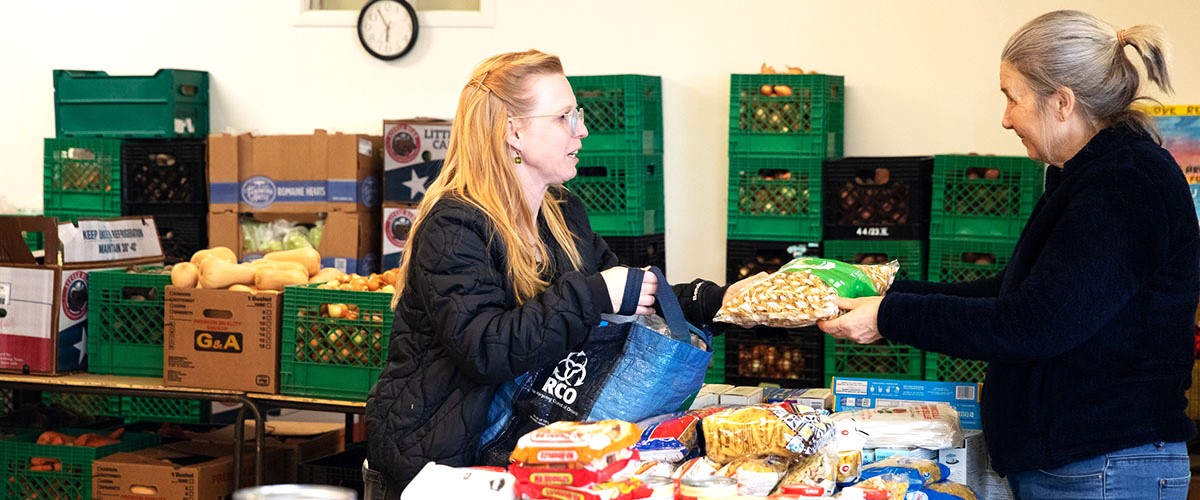
In the wake of the COVID-19 pandemic came an unprecedented rise in the cost of living and food inflation, leaving many with grocery budgets stretched razor thin. Having a steady employment income no longer equates to food security. According to the Who’s Hungry 2023 report, an astonishing 52 per cent of new food bank users reported having someone in their household who is employed.
Kathy, a single mom with two young sons, was among those most affected by the pandemic. Despite the income she received from her full-time job, she was no longer able to ensure her family had enough to eat.
Every Thursday, Kathy watched from her apartment window as the line of clients waiting to access her neighbourhood food bank slowly snaked down the street, growing longer week after week.
Watching mothers with small children, elderly couples and young adults lining up, she slowly began to realize that the food bank could be a helpful resource for her. “It was starting to sink in that I couldn’t do it alone,” she says.
But the decision to access the food bank didn’t come until a conversation with a family member. “This isn’t forever. It’s there for people who need it and right now you need it,” Kathy recalls them telling her.
Despite the support from her friends and family, Kathy admits that accessing the food bank for the first time brought fears of being judged and a feeling that she might be taking a resource away from someone who might need it even more. “When I went in, they made me feel so welcome, it wasn’t at all like I expected. I knew they were there to support me,” she says. “It may be cold outside, but the people inside are very, very warm.”
Kathy says that with two growing sons, keeping the cupboards full isn’t always easy – she is grateful for the food she receives.
With 51 per cent of employed Who’s Hungry 2023 respondents reporting missing a meal to pay for something else in the past three months, Kathy is not alone.
“It’s comforting to know I can open the cupboard now and there’s a can of tuna and some pasta. Sometimes you have to get creative with meals, but you know you have that food to tide you over until you can go to the store.”
For Kathy, sharing her experience is rooted in helping others feel comfortable accessing a food bank. “I would never want someone to go hungry out of fear or shame,” she says. “If telling my story helps just one family, it’s important to do it. No one should worry about feeding their family if they don’t have to.”
If you would like to support Daily Bread in providing access to food for families like Kathy’s, click here to make your donation today.